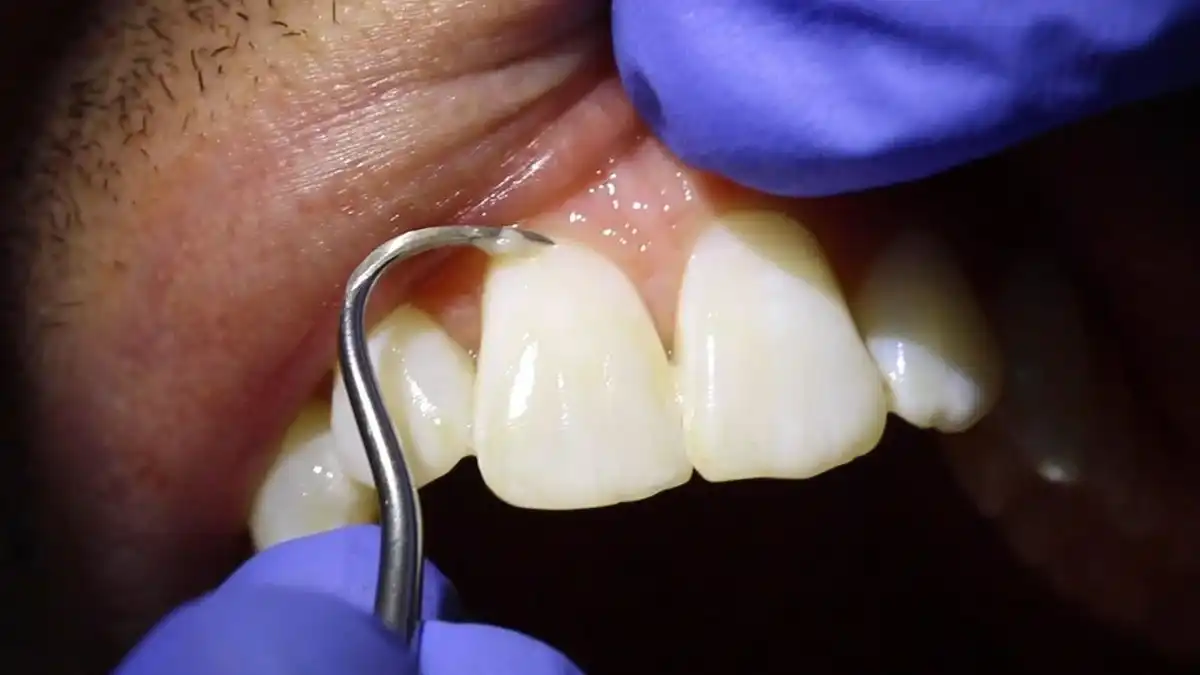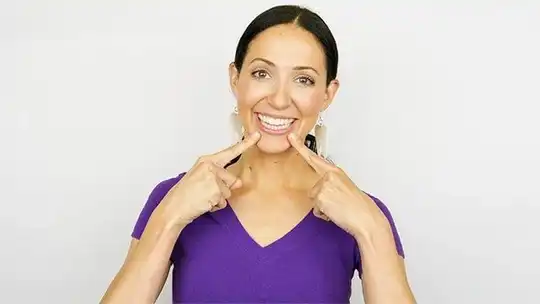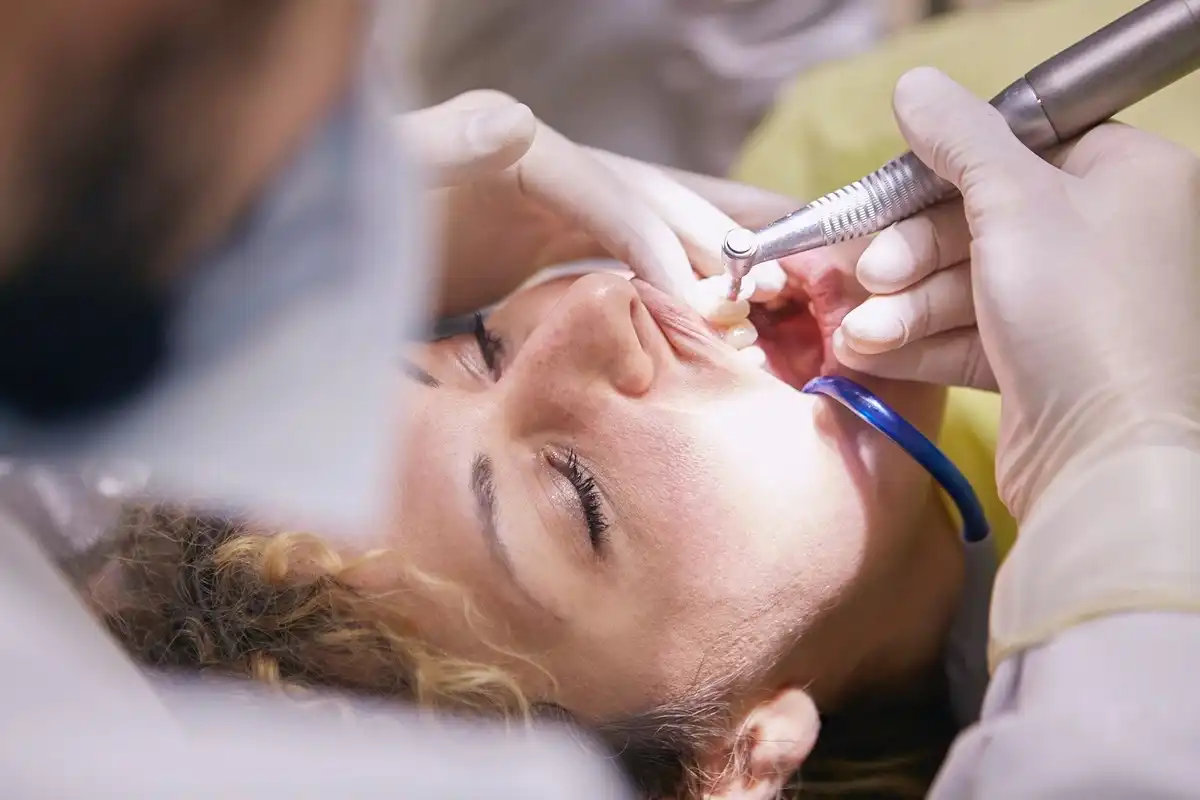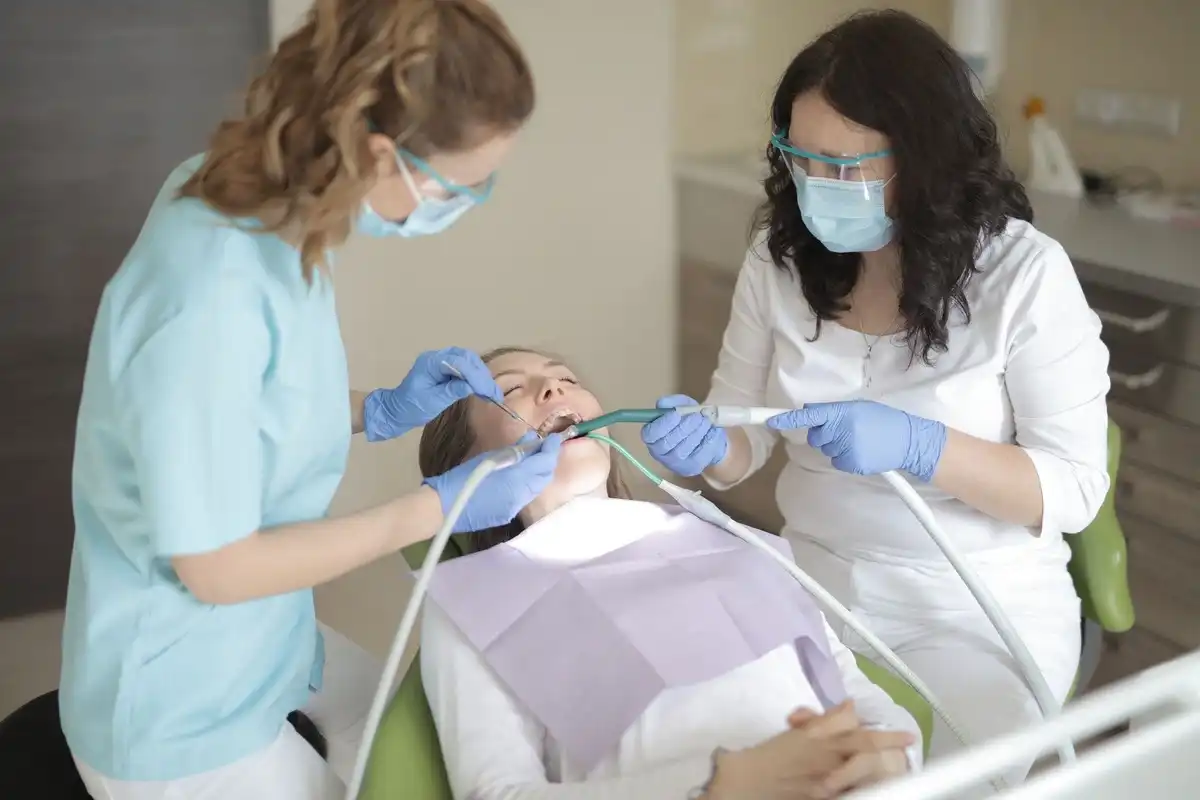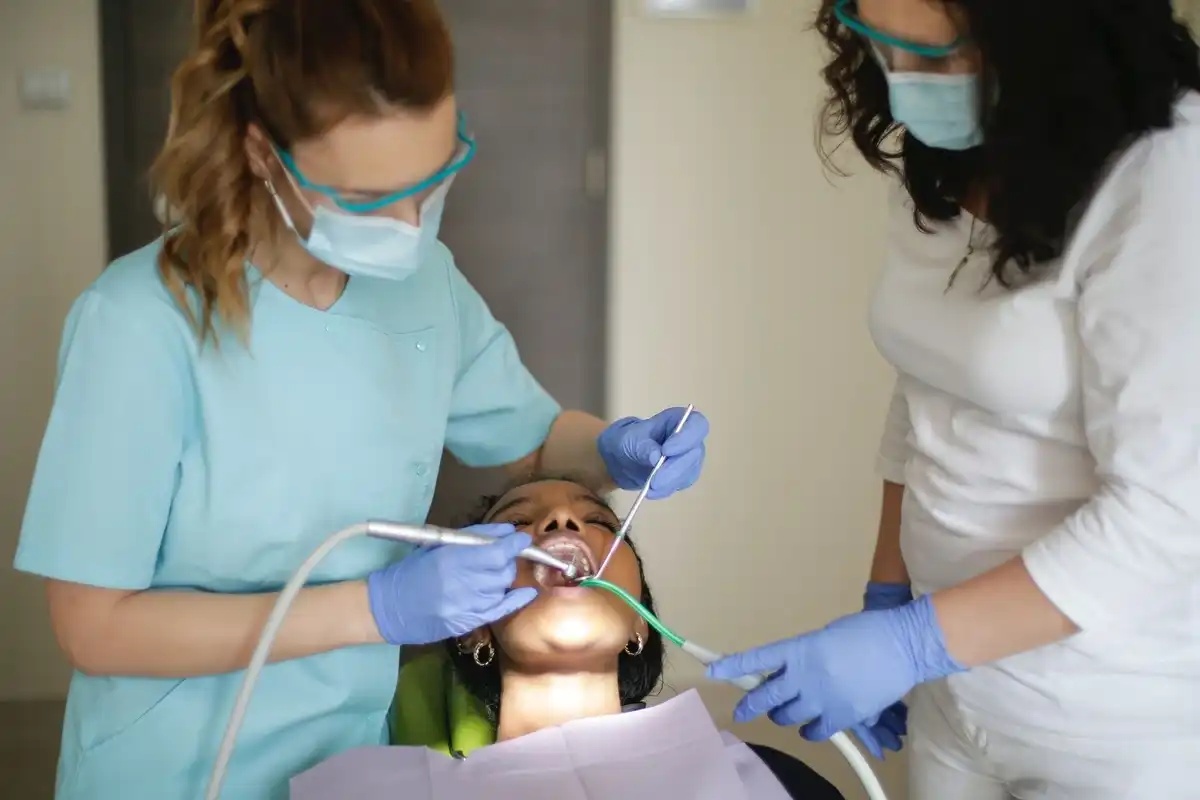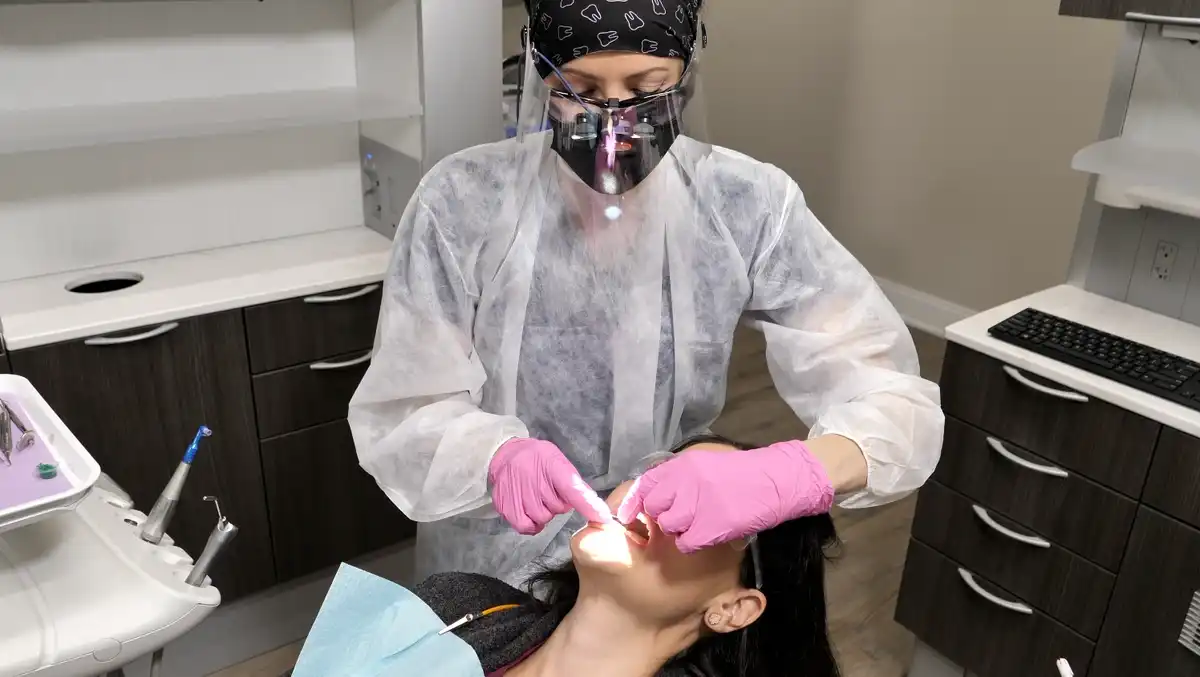How To PREPARE For Dental Hygiene School | What To EXPECT

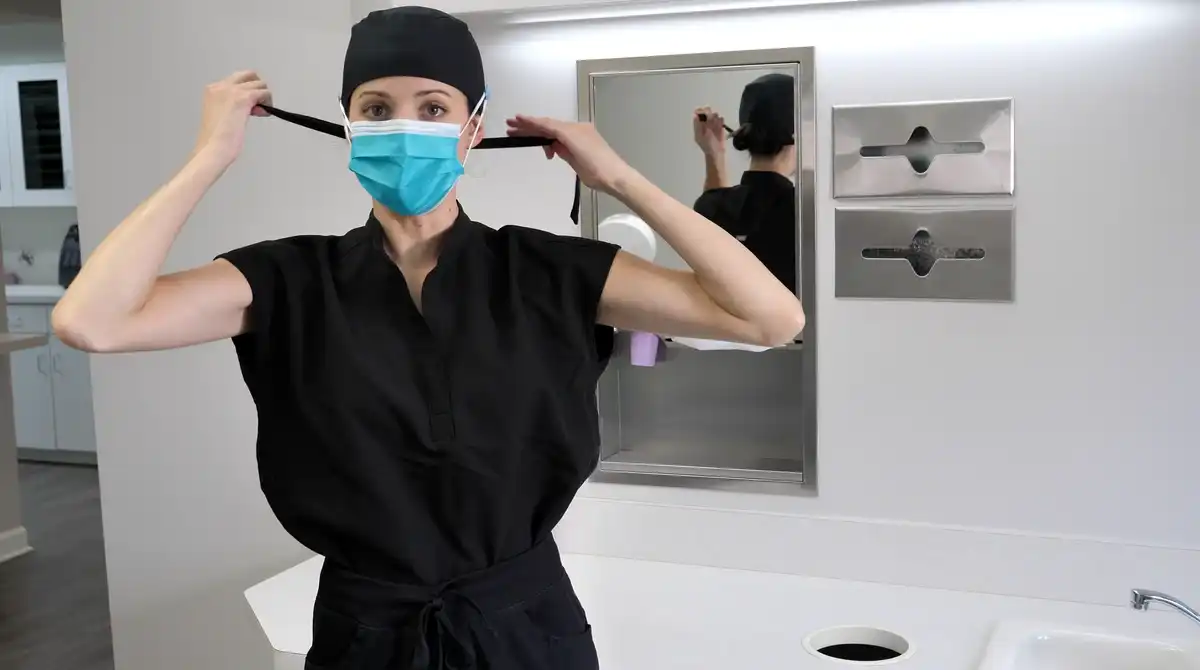
Are you in the process of applying to dental hygiene school or were you recently accepted to a dental hygiene program? Becoming a dental hygienist will be one of the most exciting things that will happen to you! Knowing how to prepare for dental hygiene school can help you understand what to expect, give yourself a little jump-start, and even set smart expectations for yourself over the next two years.
Dental Hygienist School
First things first, knowing how to prepare for dental hygiene school will help you set some realistic expectations both for yourself and your friends and family. Becoming a dental hygienist takes a lot of work. You don’t want to stretch yourself too thin or have preconceived notions going into dental hygiene school and then be completely caught off guard when you learn it’s totally different.
Whether you’re getting your associate’s degree or bachelor’s degree in dental hygiene, you’ll be spending two years in lectures and clinicals learning how to become a dental hygienist. You won’t have a lot of other time for anything more than studying. So, when you do, use it wisely. This time you have right now is great for preparing so that you can go in with the mental attitude and focus needed to give it your very best.
1. Follow The School’s Recommendations
The very first thing you want to do when you’re accepted to dental hygiene school is follow all of the required step-by-step instructions provided by your college or university. Remember that your hygiene program is like a school in and of itself, so there will be extra steps to take before your first day of class.
For example, you’ll probably be required to show proof of multiple different vaccines, have a recent well visit, and provide all of the appropriate documentation both to your college and the dental hygiene coordinator. You’ll also want to get all of your financial aid organized so that you’re clear to register for classes.
Every dental hygiene school is different. If you haven’t already applied to a specific program, be sure to find out what each school requires. The better prepared you are when you apply (such as taking all of your prerequisite classes) the more likely you are to get admitted.
2. Buy All Necessary Items
After you pay your tuition, you’ll have some other expenses that you’ll need to look into. Such as instrument sets, scrubs, PPE, textbooks, extra hygiene supplies, and even shoes to wear in clinic (because you don’t want to wear your everyday tennis shoes in there.)
All dental hygiene schools have different types of kit requirements for their students. Some include matching school-colored scrubs, others just have to fit a certain dress code. At least all of the instruments you’re buying upfront—usually through the hygiene department or their supply rep—will last for a long time, so they’re more of a one-time investment. You’ll want to take really good care of them because if you break something it can be pretty expensive to repair or replace it. Like your slow-speed handpiece or your ultrasonic scalers.
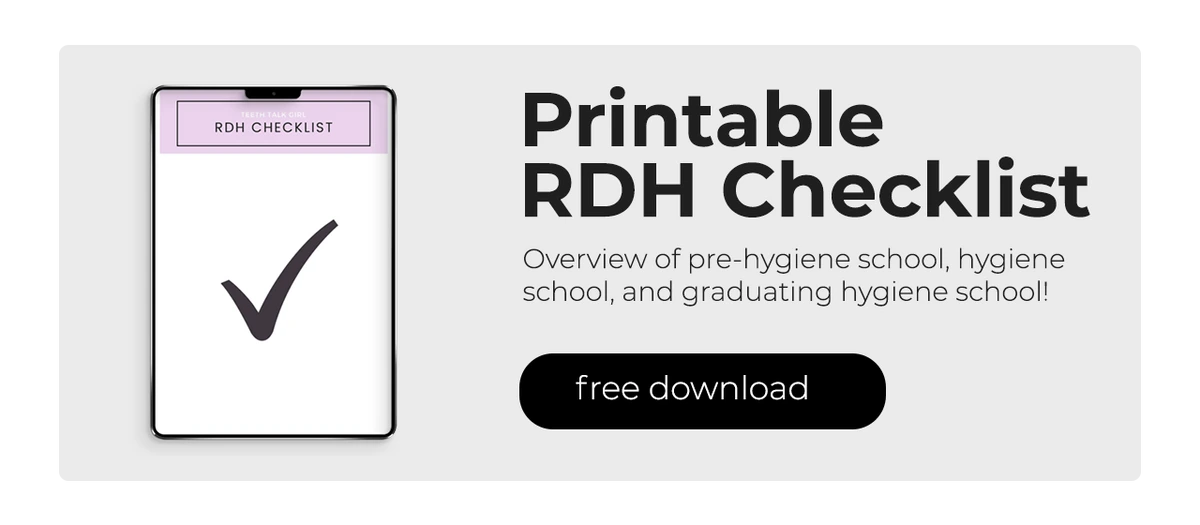
If you’re given the choice of optional items like loupes, I highly recommend going ahead and investing in them. That way you’ll have two years to practice and get used to using them every day before you graduate and start working on private practice patients.
All of the extra expenses are separate from your tuition and textbooks, so make sure to get a detailed estimate from your hygiene department whenever you’re figuring out how much to save or what to include in your student loans.
3. Organization & Self-Care In School Is The Biggest Tip!
In the last “free” time you have before you start hygiene school, take an opportunity to get plenty of rest and relaxation. Consider taking a trip with friends, going on one last vacation, or just catching up on all the sleep you can, while you can.
Dental hygiene school is extremely demanding and fast paced, with little downtime between classes or over holiday breaks. Even when you do have breaks, you’ll probably find yourself studying for board exams. Taking a “me” break a year from now is going to be more challenging to do, so go ahead and give yourself one now. On that note, you probably don’t want to try to plan a wedding or work a full time job when you’re attending hygiene school. You’re going to get tired, cranky, and will probably fall asleep studying at least more than a few times. Use your free time wisely right now because it will be a couple of years before things slow down again.
How good are you at time management? Whenever you have questions about how to prepare for dental hygiene school, I highly recommend time blocking. Make time for resting, self-care, fresh air, and school. Staying organized will keep you on task without burning both ends of the candle at the same time.
Scheduling time for self-care will help you prevent burnout before you reach a breaking point. Because hygiene school will likely push you further than you’re used to. It can be really hard to try to take a break when you feel like you need one, so try to schedule those blocks of time out in advance. Not only will it give your mind and body the rest that it needs, but it will give you something to look forward to regardless of how simple it is. Maybe it’s just takeout and a hot bath once a week after a tough clinical, or a 15-minute walk outdoors three times a week during your lunch break. Make time for “me” time.
4. Brush Up On Dental Terminology
Almost every dental hygienist has a little bit (or lot of bit?) of a tendency to have some over-achiever, perfectionist, or OCD inclinations built right into them. You might as well take advantage of them! If you’re looking for a way to get a head start on hygiene school, right now is the perfect opportunity to brush up on your dental terminology.
Can you go into hygiene school without knowing anything about teeth? Absolutely. But if you’re already familiar with the different tooth names and surfaces, you’ll be slightly ahead and have a little less of a learning curve once school starts. Any of your classmates that are coming from dental backgrounds, such as dental assistants, might seem to be “ahead” of you once classes start. But within a few months, everybody will start to be on an equal playing field.
5. Shadow A Dental Office
Before school starts, consider taking time to shadow other dental hygienists or dentists in different types of practices. Maybe spend a little time in a pediatric or periodontal office. Shadowing other dental providers and hygienists will give you a great feel for what a day-in, day-out routine is like. Right now, is really your only chance, because the next time you want to shadow, you’ll probably already be a graduate looking for your first clinical job! Being familiar with the patient-care atmosphere will help your transition into clinicals and private practice after you graduate from dental hygiene school.
6. Volunteer
Along the lines of self-care, it’s also important to give back to others. Make time to volunteer while you’re in hygiene school and use the tools that you’re learning to help the community that you live in. You might even have some public health projects where you’re required to volunteer, so it can be super helpful to already have some relationships established with organizations in your area. One opportunity that students can help with is putting on Happy Teeth oral health workshops in their area as an oral health educator. These outreach activities will also look good on your future job resume! you can check out volunteering opportunities with happyteeth!

Recap
Knowing how to prepare for dental hygiene school will make the transition less stressful as you set realistic expectations. Always start with following your specific dental hygiene school’s checklist, such as purchasing equipment, getting vaccines, or buying the right scrubs. Continue to make time for self-care now and use the free opportunities you have before school starts because you won’t have much downtime for the next two years. If you can, go ahead and learn some dental terminology and/or shadow in a dental office to see how things are done. And when you’re able, always use your new skill set to give back; it will help you feel more fulfilled and assured about your new career choice!

Make your inbox smile!
Subscribe
